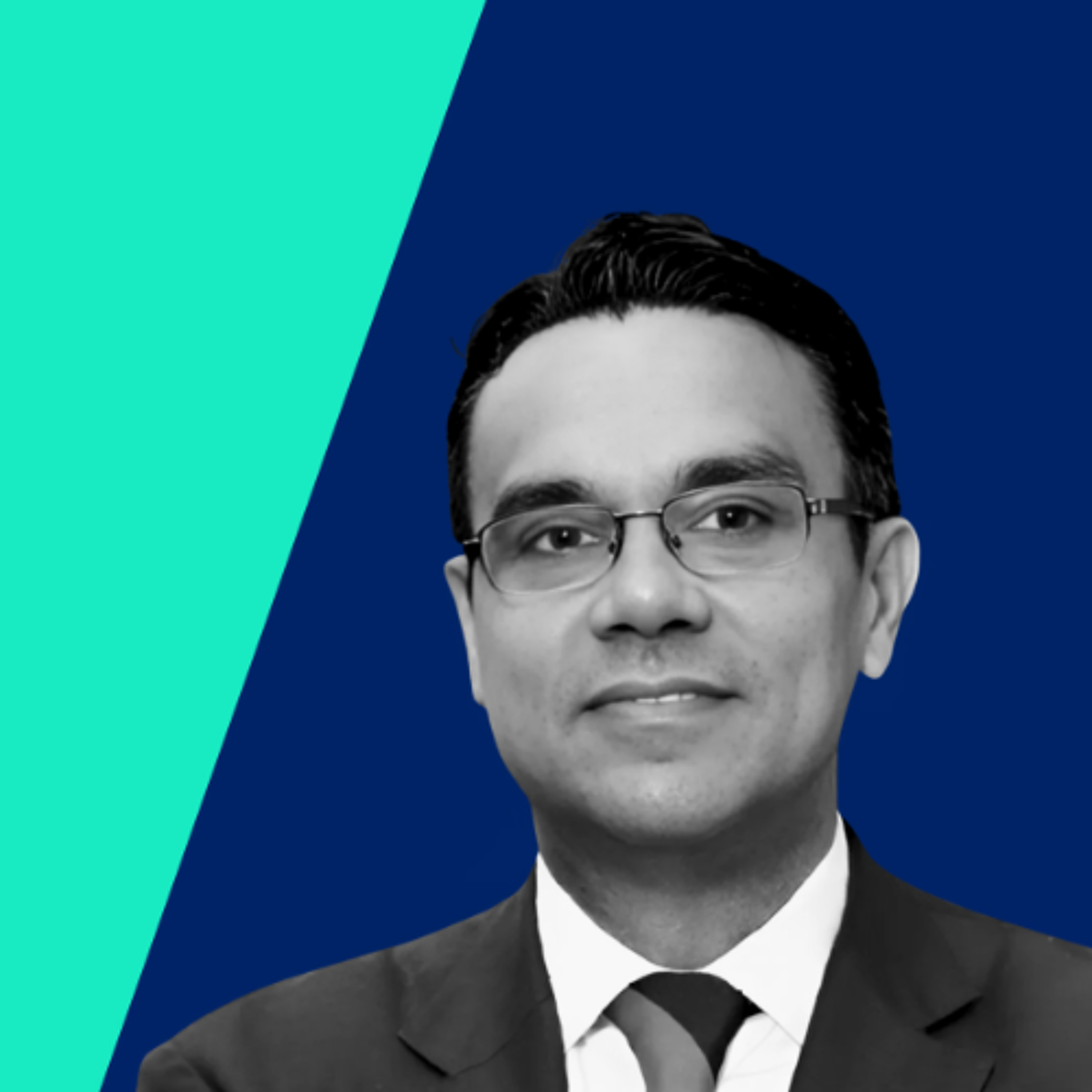Discover Financial Crime Matters
Financial Crime Matters

Financial Crime Matters
Author: Kieran Beer (ACAMS)
Subscribed: 502Played: 9,828Subscribe
Share
© All rights reserved
Description
In this podcast series, Kieran Beer (Chief Analyst at ACAMS) interviews the movers and shakers of the anti-financial crime world.
Listen for fast-paced conversations about the latest financial scandal to hit newsstands, and insights on trending Financial Crime topics.
Have something you’d like to hear covered? Email Kieran on podcasts@acams.org and tell us what matters to you. You can also follow Kieran on twitter www.twitter.com/kieranbeer
Subscribe so you don’t miss a single episode!
Listen for fast-paced conversations about the latest financial scandal to hit newsstands, and insights on trending Financial Crime topics.
Have something you’d like to hear covered? Email Kieran on podcasts@acams.org and tell us what matters to you. You can also follow Kieran on twitter www.twitter.com/kieranbeer
Subscribe so you don’t miss a single episode!
92 Episodes
Reverse
In this episode of “Financial Crime Matters,” Kieran talks live from the ACAMS Assembly Canada with Inspector Nick Souccar, who is Officer in Charge of Federal Policing Criminal Operations, Serious and Organized Crime, and the Canadian Integrated Response to Organized Crime for the Royal Canadian Mounted Police.
Nick and Kieran discuss law enforcement’s efforts to secure Canada’s borders against the importation of ‘traditional’ plant-based drugs like cocaine and the flood of precursor chemicals for producing fentanyl in makeshift labs throughout the country. With 21 fentanyl-related deaths in Canada per day, efforts to fight drug trafficking and manufacturing throughout has required a massive effort, recently energized by Prime Minister Mark Carney’s office of Canada’s Fentanyl Czar Kevin Brosseau and the creation of the Joint Operational Intelligence Cell.
In combating dangerous illicit drugs, Nick details some of the ways drug traffickers launder money and the kinds of invaluable information the financial community can provide to law enforcement. With criminal organizations regularly creating new dangerous synthetic drugs, many of them not opioids whose overdoses can be countered by Naloxone, Nick points out the need for information sharing via public and private partnerships.
In this episode of "Financial Crime Matters," Kieran talks live from The ACAMS Assembly Las Vegas with Ned Conway, Executive Secretary at the Wolfsberg Group, an association of 12 of the world's largest banks that focuses on managing financial crime and money laundering risks.
Ned discusses Wolfsberg's recommendations for banking stablecoin producers, pointing to the group's recent guidance "Provision of Banking Services to Fiat-backed Stablecoin Issuers." The guidance adapts some of Wolfberg's seminal recommendations for correspondent banking relationships and can be "flipped" to serve banks considering dealing in stablecoin in various capacities.
Commenting on remarks earlier in the day by Undersecretary of the Treasury for Terrorism and Financial Intelligence John Hurley, Ned welcomeds promises of simplified suspicious activity reporting, greater information sharing by the public and private sectors, and regulatory oversight primarily focused on getting law enforcement what it needs to effectively fight crime.
In this episode of "Financial Crime Matters," Kieran talks with Eddie Fishman, author of “Chokepoints: How the Global Economy Became a Weapon of War," about the rapid growth in the use of financial sanctions in the 21st Century, with each US president from George W. Bush on imposing sanctions at twice the rate of his predecessor.
Drawing on history and his own experience from stints at the US State Department, Pentagon and Treasury, Eddie cites examples of successful and unsuccessful sanctions programs, arguing that the former generally seek to force specific behavioral changes from a targeted government, while the latter are often too ambitious. Sanctions, for example, that seek regime change leave government leaders with little incentive to negotiate.
Presidents Bush’s and Obama’s actions against Iran that resulted in the Islamic state suspending efforts to create material for nuclear weapons production under the 2015 Joint Comprehensive Plan of Action (JCPOA) exemplify the successful use of sanctions, Eddie says, adding that a weakness in US sanctions policy is the potential for political change. The Trump administration withdrew from the JCPOA in 2018.
Contrary to some characterizations, particularly those from Russian officials, Eddie also argues that sanctions against the Putin regime have stunted Russia’s economy and, consequently, its ability to wage war.
In this episode of "Financial Crime Matters," Kieran talks with AUSTRAC CEO Brendan Thomas about his agency's efforts to implement a vast extension of Australia's anti-money laundering regime to about 80,000 new entities under legislation commonly referred to as T2.
In service to those efforts, Brendan details AUSTRAC's outreach to law firms, accountants, real estate agencies and other designated non-financial businesses and persons who will be required to create an anti-money laundering (AML) risk analysis, appoint an AML officer and be ready to file suspicious matters reports by July 2026.
Key to Australia's need to come into compliance with the Financial Action Task Force's global standards, the extension of AML regulation is also central to the country's plan to actually stem the flood of illicit funds from transnational crime organizations into Australia's banking, gaming, real estate, precious metals and other sectors, Brendan says.
As part of its commitment to effectuate more fund seizures and prosecutions, Brendan discusses how the AUSTRAC initiative will also utilize public-private information sharing, embodied by the country's Fintel Alliance, increased staffing, and AI and other technological tools to weaponize what will ultimately be 100,000 anti-financial crime reporting entities under T2.
In this episode of "Financial Crime Matters," Kieran talks with Renata Furst Galvão about identity theft, focusing on the theft of children’s identities for financial exploitation. Renata recounts the theft of her own identity as a six-year-old child and the tremendous burden it placed on her until her financial records were cleared of debt in her late twenties. Renata draws on her experience as a victim as detailed in the YouTube documentary short “One in Fifty” and the expertise she subsequently achieved in her professional life as partner manager for risk intelligence at the LSEG Group. https://www.youtube.com/watch?v=tU-lC6_801E
In this episode of "Financial Crime Matters" Kieran talks with John Tobon, former assistant director for the Department of Homeland Security Investigations' Countering Transnational Crime and Terrorism Division, to set the stage for ACAMS' upcoming Assembly Latin America in Cancun, July 21- 22, 2025. In this fast-moving conversation, John and Kieran discuss Chinese underground money laundering, migration and money laundering, and the state of public private partnerships in Latin America. https://www.acams.org/en/events/the-assembly/the-assembly-latam
In this episode of “Financial Crime Matters,” Kieran talks with Sara Brimbeuf, head of the illicit financial flows program at Transparency International France.
Sara and Kieran discuss TI France's efforts to fight bribery and corruption in conjunction with TI chapters around the globe and the non-governmental agency's current efforts to bring to justice French intermediaries accused of aiding global leaders in laundering the proceeds of corruption.
Sara also describes the uses and limits of TI's well-known "Corruption Perception Index," and its new benchmark, the Opacity in Real Estate Ownership (OREO) Index, which tracks 24 jurisdictions' requirements for disclosure of real estate ownership, as well as TI France's fight for transparency in corporate ownership in general in France.
In this episode of “Financial Crime Matters,” Kieran talks with Andy Greenberg, senior writer at WIRED and author of the blockchain forensic thriller “Tracers In The Dark.” Halfway into their conversation, they are joined by Tigran Gambaryan, head of financial crime compliance at Binance and a former IRS-CI investigator.
Andy, Tigran and Kieran discuss Tigran’s detention by Nigerian authorities for 8 months as part of the government's effort to force Binance to pay billions in penalties, which was the subject of an in-depth WIRED article by Andy. They also talk about Tigran’s role as a blockchain forensics pioneer documented by Andy in “Tracers In The Dark,” and what each sees as the opportunities and challenges associated with the rise of digital assets.
In this episode of “Financial Crime Matters,” Kieran talks with Dr. Hans-Jakob Schindler, Senior Director of the Counter-Extremism Project about the current violent threats posed by Islamic radicals, and right-wing and left-wing extremist groups.
Drawing on his expertise as Senior Director of the Counter Extremism Project and years of diplomatic service, Hans names the extremist organizations that currently threaten to unleash global violence.
While detailing some of the catalysts for the militancy of these organizations, including ongoing conflict in the Middle East and Africa, and political polarization in the United States and Europe, Hans also discusses what financial institutions and government can do individually and in concert to cut off funding to terror groups
In this episode of “Financial Crime Matters,” Kieran talks with Geoff White, the author of three crucial books on financial crime, including “The Lazarus Heist: From Hollywood to High Finance: Inside North Korea's Global Cyber War.”
Drawing from “The Lazarus Heist” and a plethora of recent information, Geoff details North Korea’s $1.5 billion theft of ether in February from Bybit, a large global cryptocurrency exchange.
During their discussion, Geoff provides a decades long history of North Korea’s efforts to steal foreign currency, particularly dollars, and describes how its hackers used a third-party vendor and long-term surveillance to empty Bybit’s Ethereum wallet. Geoff also describes Bybit’s ongoing efforts to recover the lost cryptocurrency and argues for a concerted worldwide effort to prevent future hacks.
“If North Korea gets its hands on this money it’s fairly obvious what it’s going to do,” Geoff says. “It’s going to be spending on, well perks for the regime partly, but its going to be spending on missile parts and nuclear weapons material.”
In addition to “The Lazarus Heist,” Geoff is the author of “Rinsed: From Cartels to Crypto How the Tech Industry Washes Money for the World's Deadliest Crooks” and “Crime Dot Com: From Viruses to Vote Rigging, How Hacking Went Global.”
In this episode of “Financial Crime Matters,” Kieran talks with the U.S. Postal Inspection Service’s Michael Bruno, who is anti-money laundering program manager at the service’s national headquarters.
Mike details some of the Inspection Service’s efforts to tackle the theft of bank checks that are “washed” to fraudulently change the payees and amounts and that are all too often stolen during violent attacks on mail carriers. Crediting the Financial Crime Enforcement Network (FinCEN), the Inspection Service’s law enforcement partners and a massive education effort, Mike shares how in roads have been made against check washing. He also discusses how the service is fighting money laundering and other types of fraud connected to the abuse of Postal Service money orders.
In this episode of “Financial Crime Matters,” Kieran talks with Claudia Quiroz, Director of the National Cryptocurrency Enforcement Team, or NCET, at the U.S. Justice Department.
Claudia and Kieran discuss the rise in cryptocurrency-enabled crime that necessitated NCET’s creation three years ago and the team’s subsequent efforts to prosecute cyber predators and seize the proceeds of their crimes. Serving as a dedicated nerve center staffed by crypto experts within the Computer Crime and Intellectual Property Section of Justice, where Claudia is deputy chief, NCET pursues a variety of frauds and scams, money laundering and other abuses of cryptocurrency. During their talk, Claudia touches on some of NCET’s cases, including against “Pig Butchering,” which she points out often involves two victims: the individual who is defrauded and enslaved individuals forced perpetrate the fraud.
In this episode of “Financial Crime Matters,” Kieran talks with Adam Levine, Director of Government Engagement for the Child Rescue Coalition (CRC).
Adam and Kieran discuss CRC’s efforts to enable law enforcement to trace online child sexual abuse material to its creators and collectors. During their discussion, Adam details some of the typologies associated with child exploitation that in tandem with CRC’s training and technological support has, to date, resulted in the arrest of more than 15,500 predators in more than 100 countries.
In this episode of “Financial Crime Matters,” Kieran talks with three individuals committed to exposing cryptocurrency scams and drawing attention to imprisoned investigative journalist Mech Dara, who is responsible for uncovering the horrific conditions and practices within Cambodian-based crypto fraud compounds.
Zeke Faux, author of “Number Go Up,” Danielle Keeton-Olsen, a freelance journalist based in Phnom Penh, and Erin West, Deputy District Attorney, Santa Clara County CA, discuss Dara’s treatment by the Cambodian government and its seeming indifference to fraud compounds that enslave tens of thousands and operate in plain sight, causing the financial ruin of millions around the world. During the podcast, Erin touches on the success law enforcement has had in recovering some victims’ money, Zeke calls on VASPs to do more to interdict crypto fraud funds, and Danielle identifies some of the organizations working for Dara’s release.
In this episode of Financial Crime Matters, Kieran sits down with Michael Grady, chief of the bank integrity unit at the U.S. Department of Justice Criminal Division during the ACAMS Assembly Vegas Conference in September.
Mike talks about the BIU’s remit to pursue criminal infractions at banks, payment service providers, cryptocurrency exchanges and other financial businesses subject to the Bank Secrecy Act. During their conversation, Mike discusses some specific cases involving institutions actively involved in breaking anti-money laundering, terror finance and sanctions laws, which pose a threat to national security.
In this episode of “Financial Crime Matters”, Kieran talks with ACAMS colleague, Craig Timm, Senior Director of AML at ACAMS.
Craig and Kieran do a deep dive into the recent settlements by TD Bank with the US Department of Justice, the Federal Reserve Board, the Office of the Comptroller of the Currency, and the Financial Crimes Enforcement Network that resulted in more than $3 billion in monetary penalties, ongoing remediation and monitorships, as well as the prosecution of two bank insiders. With more individual prosecutions likely, Craig and Kieran layout the lessons for financial institutions from settlements and discuss how compliance professionals can protect themselves from culpability when their financial institutions go astray.
Detecting True Crimes with Great Accuracy, with Oracle’s Jason Somrak
In this inaugural episode of “Financial Crime Matters: Industry Leaders,” Kieran sits down with Jason Somrak, Chief of Product & Strategy for Financial Crime & Compliance at Oracle Software.
Jason talks about the Holy Grail of anti-financial crime practice: the ability to “detect true crime with great accuracy,” which includes canceling out the noise of false positives. Jason and Kieran also discuss the possibilities and limits of current technology as well as the promise for future advancements in fighting financial crime. During their conversation, Jason also takes a stab at defining what we really talk about when we talk about artificial intelligence.
Understanding Canada’s Enhanced Regulatory Regime, with Jacqueline Shinfield.
In this episode of “Financial Crime Matters,” Kieran talks with Toronto-based attorney Jacqueline Shinfield, co-lead of Blakes’ Financial Services Regulatory Group.
Jackie details the unfolding revolution in Canadian anti-money laundering and counter terror finance, including creation of a safe harbor for information sharing among FINTRAC regulated entities and new sanctions reporting requirements.
Setting the stage for ACAMS upcoming “The Assembly Canada” November 6 and 7, Jackie also talks about how far Canada has come since the Cullen Commission Report by explaining the new role title insurers will play in verifying beneficial ownership in real estate transactions and the new powers FINTRAC will have to examine foreign interference in Canada’s financial system.
In this episode of “Financial Crime Matters,” Kieran talks with Chris Ainsley, head of fraud risk management at Santander Bank.
Drawing on more than 20-year history at Santander, Chris details how financial institutions like his are fighting the current spike in online fraud that utilizes elaborate schemes to get customers to authorize payments from their accounts into the accounts of scammers.
With it now being possible to conduct all our banking, buying, selling and a host of other transactions online, banks are tasked with educating customers about the intricate subterfuges to trick them into authorizing payments to criminals, says Chris.
Financial institutions are having “very complex conversations” with customers to save them from victimization. “It’s not just “why are you making a payment at 2 pm in a foreign country’” anymore, which often involved a stolen or cloned ATM card that the bank quickly canceled and replaced, Chris says. Now, it’s sometimes about engaging a client at length as to why they want to make a seemingly dodgy transaction and warning them of the risk.
Kieran talks with CJ Rinaldi, chief compliance officer at Kraken Digital Asset Exchange, about the virtual asset service provider’s efforts to prevent money laundering, terror finance, sanctions busting, and fraud.
Drawing on his experience as senior counsel at the SEC and at financial institutions, CJ also discusses the kind of regulatory regime the cryptocurrency industry needs as well as the benefits and limits of blockchain transparency for financial transactions.
----------
This Financial Crime Matters episode is sponsored by:
Focal - https://www.getfocal.ai

























So interesting to hear from people with ´institutional memory’. The Patriot Act did drive things - like forfeiture - into law, but so sad that they had been waiting in the queue, disregarded, until a human tragedy (9/11) forced lawmakers into action.
Maybe a report on Guinness share-trading fraud BAE Systems weapons sales to Saudi Arabia Barclays emergency fundraising BAE Systems radar sale to Tanzania